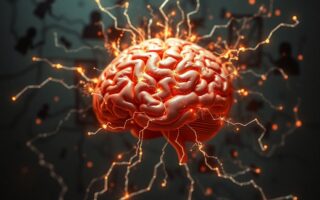Unraveling the Connection: Can Lack of Sleep Cause a Mental Breakdown?
Sleep is an essential component of overall health and well-being, playing a critical role in cognitive function, emotional regulation, and physical health. Conversely, insufficient or poor-quality sleep can have significant detrimental effects on mental health, potentially contributing to the development or exacerbation of mental health conditions. In this article, we’ll explore the intricate relationship between sleep and mental health, examining the potential impact of sleep deprivation on mental well-being and whether it can lead to a mental breakdown.
Understanding Sleep Deprivation
Sleep deprivation occurs when an individual fails to obtain an adequate amount of sleep, either due to shortened sleep duration, disrupted sleep patterns, or poor sleep quality. While occasional bouts of sleep deprivation may occur in response to temporary stressors or lifestyle factors, chronic sleep deprivation—defined as consistently obtaining less sleep than the recommended amount—can have profound effects on both physical and mental health.
Impact on Mental Health
The effects of sleep deprivation on mental health are well-documented, with research highlighting its role in contributing to a range of psychological symptoms and conditions. Some potential consequences of sleep deprivation on mental health include:
- Cognitive Impairment: Sleep deprivation can impair cognitive function, leading to difficulties with concentration, memory, decision-making, and problem-solving. Individuals may experience decreased alertness, slower reaction times, and reduced ability to perform complex tasks effectively.
- Emotional Dysregulation: Sleep deprivation can disrupt emotional regulation processes, making individuals more prone to mood swings, irritability, anxiety, and depression. Lack of sleep can exacerbate existing mental health conditions or trigger the onset of new symptoms.
- Increased Stress Reactivity: Sleep deprivation can amplify the body’s stress response, leading to heightened levels of cortisol—the stress hormone. This can contribute to feelings of overwhelm, heightened anxiety, and difficulty coping with stressors.
- Impaired Judgment and Decision-Making: Sleep-deprived individuals may exhibit impaired judgment and decision-making abilities, leading to risky behaviors, impulsivity, and poor choices that can have negative consequences for mental well-being.
Can Lack of Sleep Cause a Mental Breakdown?
While sleep deprivation can significantly impact mental health and exacerbate existing symptoms of mental illness, whether it can directly cause a mental breakdown is a more complex question. A mental breakdown, also known as a nervous breakdown or emotional crisis, typically involves a sudden or gradual onset of intense emotional distress and impaired functioning.
While sleep deprivation can certainly contribute to the onset or exacerbation of symptoms associated with a mental breakdown—such as heightened anxiety, emotional dysregulation, and cognitive impairment—it is often not the sole factor. Mental breakdowns are typically multifaceted experiences influenced by a combination of biological, psychological, and environmental factors.
Conclusion
While sleep deprivation can have significant implications for mental health and well-being, directly causing a mental breakdown is a nuanced concept. Sleep deprivation can contribute to cognitive impairment, emotional dysregulation, and increased stress reactivity, potentially exacerbating symptoms associated with a mental breakdown. However, mental breakdowns are typically influenced by a myriad of factors, and addressing sleep deprivation alone may not be sufficient to prevent or resolve such an experience. Maintaining healthy sleep habits, seeking support for mental health concerns, and implementing stress management strategies are crucial steps in promoting overall well-being and resilience against mental breakdowns.













